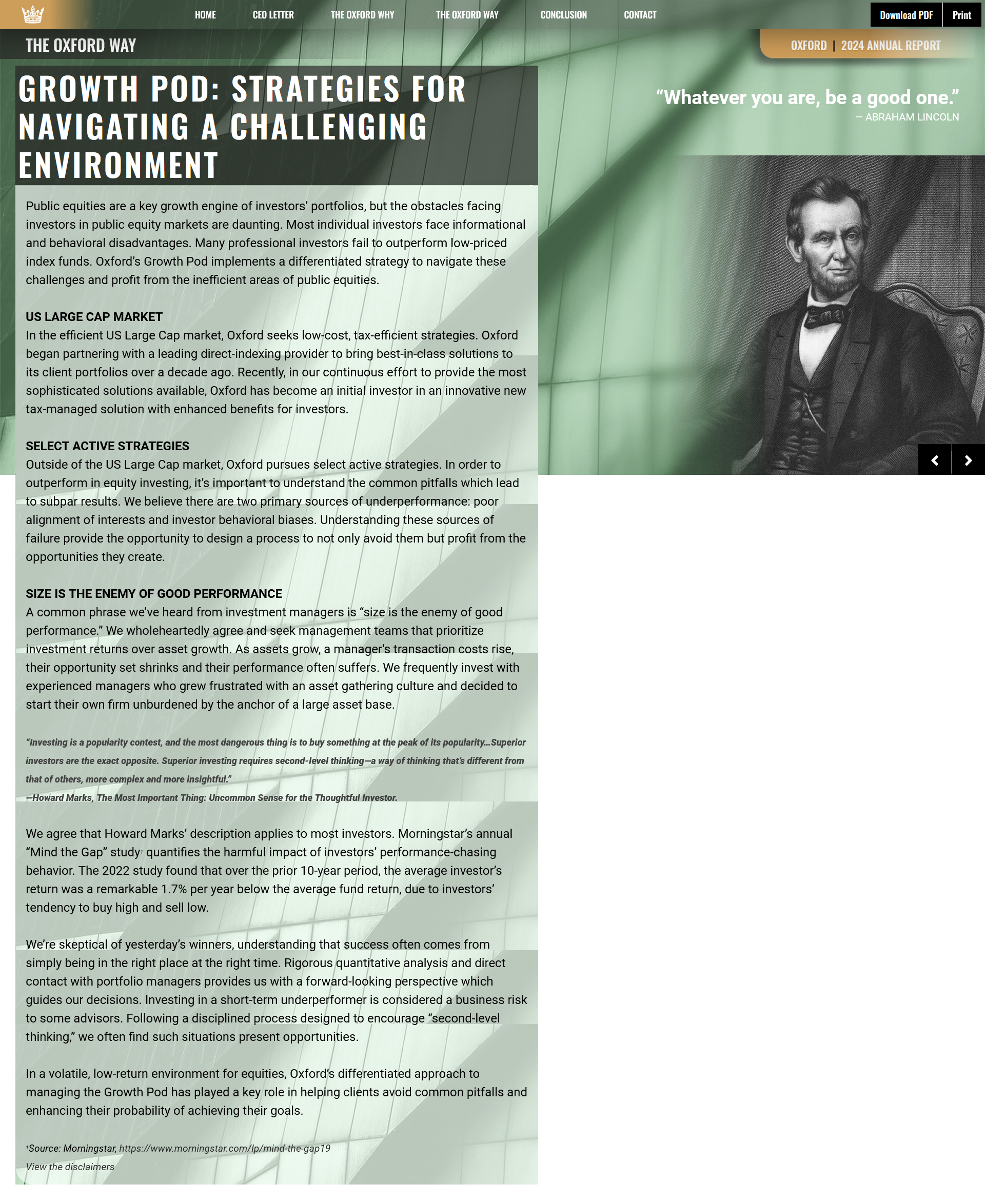Public equities are a key growth engine of investors’ portfolios, but the obstacles facing investors in public equity markets are daunting. Most individual investors face informational and behavioral disadvantages. Many professional investors fail to outperform low-priced index funds. Oxford’s Growth Pod implements a differentiated strategy to navigate these challenges and profit from the inefficient areas of public equities.
US LARGE CAP MARKET
In the efficient US Large Cap market, Oxford seeks low-cost, tax-efficient strategies. Oxford began partnering with a leading direct-indexing provider to bring best-in-class solutions to its client portfolios over a decade ago. Recently, in our continuous effort to provide the most sophisticated solutions available, Oxford has become an initial investor in an innovative new tax-managed solution with enhanced benefits for investors.
SELECT ACTIVE STRATEGIES
Outside of the US Large Cap market, Oxford pursues select active strategies. In order to outperform in equity investing, it’s important to understand the common pitfalls which lead to subpar results. We believe there are two primary sources of underperformance: poor alignment of interests and investor behavioral biases. Understanding these sources of failure provide the opportunity to design a process to not only avoid them but profit from the opportunities they create.
SIZE IS THE ENEMY OF GOOD PERFORMANCE
A common phrase we’ve heard from investment managers is “size is the enemy of good performance.” We wholeheartedly agree and seek management teams that prioritize investment returns over asset growth. As assets grow, a manager’s transaction costs rise, their opportunity set shrinks and their performance often suffers. We frequently invest with experienced managers who grew frustrated with an asset gathering culture and decided to start their own firm unburdened by the anchor of a large asset base.
“Investing is a popularity contest, and the most dangerous thing is to buy something at the peak of its popularity…Superior investors are the exact opposite. Superior investing requires second-level thinking—a way of thinking that’s different from that of others, more complex and more insightful.”
—Howard Marks, The Most Important Thing: Uncommon Sense for the Thoughtful Investor.
We agree that Howard Marks’ description applies to most investors. Morningstar’s annual “Mind the Gap” study1 quantifies the harmful impact of investors’ performance-chasing behavior. The 2022 study found that over the prior 10-year period, the average investor’s return was a remarkable 1.7% per year below the average fund return, due to investors’ tendency to buy high and sell low.
We’re skeptical of yesterday’s winners, understanding that success often comes from simply being in the right place at the right time. Rigorous quantitative analysis and direct contact with portfolio managers provides us with a forward-looking perspective which guides our decisions. Investing in a short-term underperformer is considered a business risk to some advisors. Following a disciplined process designed to encourage “second-level thinking,” we often find such situations present opportunities.
In a volatile, low-return environment for equities, Oxford’s differentiated approach to managing the Growth Pod has played a key role in helping clients avoid common pitfalls and enhancing their probability of achieving their goals.
1Source: Morningstar, https://www.morningstar.com/lp/mind-the-gap
— abraham lincoln

